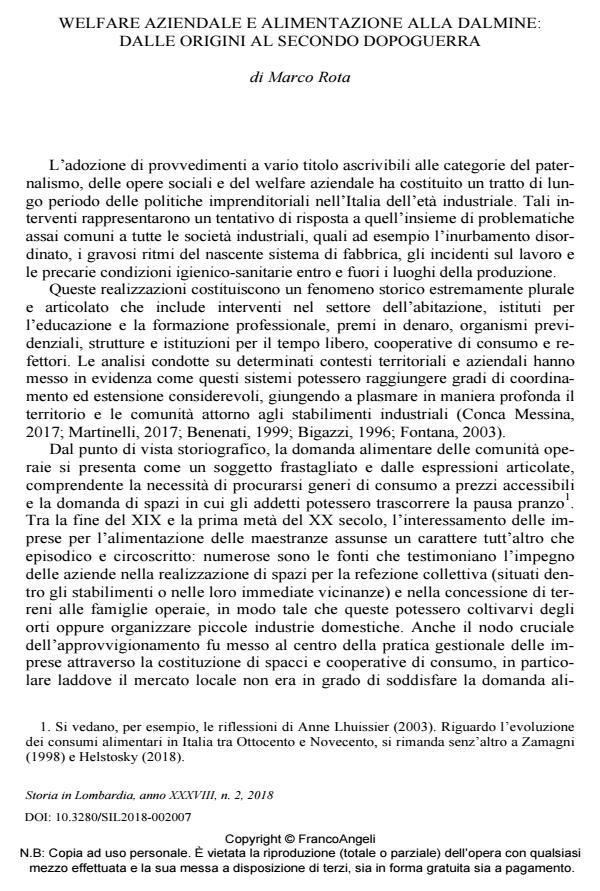Industrial welfare and alimentation at the Dalmine: from the origins to the 1950s
Journal title STORIA IN LOMBARDIA
Author/s Marco Rota
Publishing Year 2020 Issue 2018/2
Language Italian Pages 27 P. 133-159 File size 242 KB
DOI 10.3280/SIL2018-002007
DOI is like a bar code for intellectual property: to have more infomation
click here
Below, you can see the article first page
If you want to buy this article in PDF format, you can do it, following the instructions to buy download credits

FrancoAngeli is member of Publishers International Linking Association, Inc (PILA), a not-for-profit association which run the CrossRef service enabling links to and from online scholarly content.
The involvement of industrial enterprises in the field of popular food consumption is a significant and many-sided historical phenomenon. This paper analyses various food policies implemented by the Dalmine Company from the early 1900s to the second post-war, reconstructing a peculiar case of overlapping between agriculture and industry in a company town. At first, the author describes food policies carried out by the enterprise until late 1920s, through the crucial passage of Great War. Successively, the paper examines agricultural structures and food policies developed by the Dalmine during 1930s, in accordance with the autarchical policies of fascism. In the third part, the author analyses the measures implemented during the Second World War, when dramatic food shortages and difficulties in supplying forced the company to expand its social role. Lastly, the paper describes the evolution of Dalmine’s food policies during the early post-war years, within a wider redefinition of the entire industrial welfare system developed in previous decades.
Keywords: Industrial welfare, company town, food consumption, canteens, company stores, agricolture.
Marco Rota, Welfare aziendale e alimentazione alla Dalmine: dalle origini al secondo dopoguerra in "STORIA IN LOMBARDIA" 2/2018, pp 133-159, DOI: 10.3280/SIL2018-002007